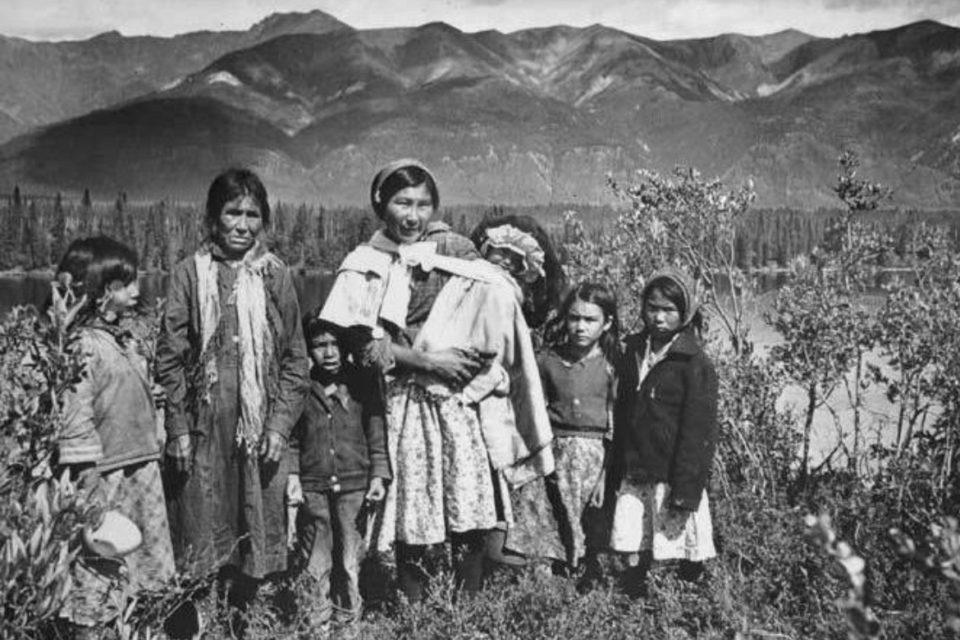It is a great irony of politics that many who complain about government incompetence are the first to invite it into every corner of their lives. As Washington flies toward a third COVID stimulus package, it seems the failures of the first two have escaped the public discourse—most of all, perhaps, the little-known story of the bipartisan blunder that left Alaska’s Native American population feeling once again like foreigners in their own homeland.
Untamed and peaceful, the world of the Alaska Natives is unlike anything elsewhere in America. Consisting of at least 20 distinct language groups, Alaska Natives are both culturally diverse and bound by a common lifestyle and set of core values. Today, they are divided into five major groups: the Inupiat (or Northern Eskimos); the Yuit (or Southern Eskimos); the Athabascans, who inhabit the state’s interior; the Tlingit and Haida tribes along the Alaska-British Columbia border; and the Aleuts, who reside predominantly in the Aleutian Islands.
Having inhabited the region for at least 14,000 years before the arrival of the first Europeans, pre-contact Alaska Natives subsisted primarily on a hunting, fishing, and gathering economy, and maintained an extraordinarily rich tradition of music, art, storytelling, and genealogy. The Russian Empire’s expansion throughout the region in 1741, however, signaled the eradication of the natives’ way of life, beginning with abductions, slavery, forced conversions into the Russian Orthodox Church, and the introduction of Old World diseases like smallpox, measles, cholera, and typhoid.
Then, in 1867, the Russians sold the region to a new empire: The United States. What followed in the generations after proved to be another all-too-similar chapter in the tragic history of the state’s indigenous population. Echoing the painfully familiar patterns of the government’s treatment of minorities elsewhere, the U.S. kept tight restrictions on natives’ access to education, healthcare, voting rights, and religious freedom—ensuring a miserable quality of life that lasted long after the Territory of Alaska’s elevation to statehood in 1959.
Statehood did not ease the longstanding legal disputes over the ownership of Alaskan land, either. In December 1971, President Richard M. Nixon signed the Alaska Native Claims Settlement Act (ANCSA), completely abolishing indigenous people’s claims to their ancestral lands. Instead of tribal leadership (as in the Lower 48 states), the state’s indigenous populations came to be represented by twelve state-chartered, for-profit, regional corporations and over 200 local village corporations. (Congress later added a thirteenth regional corporation for Alaska Natives living outside the state.)
Fast forward to 2020, and the troubles with COVID take hold. Per the $2.2 trillion Coronavirus Aid, Relief, and Economic Security (“CARES”) Act, Congress approved $8 billion for the 574 federally recognized Native American tribes, to be dispensed by the end of April. But the government fell through on its promises to the Native Americans yet again. With no trace of federal aid coming as of mid-April, tribal leaders swiftly filed suit against the Treasury Department, igniting one of the most heated legal battles ever to befall the American Indian community.
The cause of the delay: questions surrounding whether, under the ANCSA, the Alaska Native corporations (ANCs) qualified for stimulus funds. As representatives of the tribes in the Lower 48 objected to the inclusion of ANCs, Alaskan Congressional delegates Sen. Lisa Murkowski, Sen. Dan Sullivan, and Rep. Don Young called their position “unfair,” encouraging officials to look past the “corporate” status of Alaska’s native representation.
Meanwhile, Sen. Chuck Schumer, with the support of several tribal leaders, took to Twitter to attack Tara Sweeney, then-assistant secretary of Indian Affairs in the Interior Department, who happened to be a former vice president at the Arctic Slope Regional Corporation. Schumer accused Sweeney of “diverting funds for tribal governments” for personal profit, to which Sweeney fired back, calling Schumer’s allegations “ignorant” and “despicably low.”
Yet this proved to be only the tip of the iceberg, especially as the incompetence of Sec. Steve Mnuchin’s Treasury Department continued to surface.
A May 2020 report from the University of Arizona exposed numerous flaws in how Mnuchin’s department administered tribal funds. Using data from the Department of Housing and Urban Development’s Indian Housing Block Grant program, the Treasury Department attempted to allocate funding based not on each tribe’s census records, but on how many people within a geographic area identified as American Indian or Alaska Native.
This failure to calculate tribal populations led to the Treasury Department overrepresenting some tribes while underrepresenting others. For example, the populations for the Miccosukee, Belkofski, Tuscarora, Tonawanda Seneca Nation, and Delaware Tribe of Indians (Eastern) were all recorded as “zero,” entitling them only to the minimum federal payment of $100,000. Also among these tribes were the Shawnee, whose current population stands around 10,000. Meanwhile, the Spirit Lake Tribe, a nation in North Dakota with approximately 7,200 members, received over $12.1 million.
Even more absurd: As tribal leaders were preparing to sue the federal government, Treasury Department officials accidentally mishandled sensitive data from nearly 700 tribes, potentially allowing financial and personal information of countless people to fall into the wrong hands.
In June, the case went to the U.S. District Court, where Judge Amit Mehta issued a 36-page opinion ruling in favor of ANCs’ ability to receive CARES Act funding. But just when it seemed the conflict had been resolved, the Lower 48 tribal governments carried the case to the U.S. Court of Appeals, who, in September, overturned Mehta’s ruling on grounds that ANCs were not “tribal governments.”
The end result: Six months, dozens of lawsuits, untold scores of impassioned tweets, and two court cases after the passage of the CARES Act, the federal government finally decided that Native Americans of Alaskan origin did not qualify for stimulus funding. One of the three appeals court judges, after admitting that the case was “technically correct,” referred to the outcome as an “unintended consequence” of the legislative process. While such language may often be heard from plain-spoken critics of government, it is less common from a representative of a government itself.
While the bewildering state of affairs elicits a number of questions, one in particular might strike us as a particularly great starting point: what can Americans—of all cultural backgrounds—learn from this?
The story of the state’s relationship with its aboriginal inhabitants is not a pleasant one. Perhaps there is a case to be made that indigenous people are the most marginalized people on Earth, living within the borders and under the supervision of a government they never asked for, but one that foisted itself upon them anyway.
To limit the following bit of circumlocution to the eighth decade of each century: whether it is the Spanish Empire’s spread across the New World through the 1570s, the British Empire’s expansion of African slavery in the West Indies through the 1670s, the Russian Empire’s forced labor campaigns against the natives of the Pacific Coast in the 1770s, the Dutch Empire’s confiscation of native land in Java in the 1870s, the Portuguese Empire’s forced relocation campaigns against the people of Mozambique in the 1970s, or the American Empire’s disdain for the Alaska Native people today, the indigenous peoples of the world have most commonly suffered all the grisliest defects of government—and least commonly enjoyed its sparse redeeming qualities. As C.S. Lewis might have put it, they suffer all of its sting and collect none of its honey.
In other words, could there be a more clear-cut account of government without consent than in the stories of those whose existence—like indigenous Americans—is most irrefutably defined by their fight against coercive government?
Reed Cooley is a writer from Laurel, Mississippi. He graduated from Baylor University in 2017 with a B.A. in Anthropology and History.
This article has been republished with permission from Catalyst, a project of the Independent Institute. You can read the original here, under the title “Regulatory Shadows Make Dark Winter for Alaska”.
Image: National Park Service




